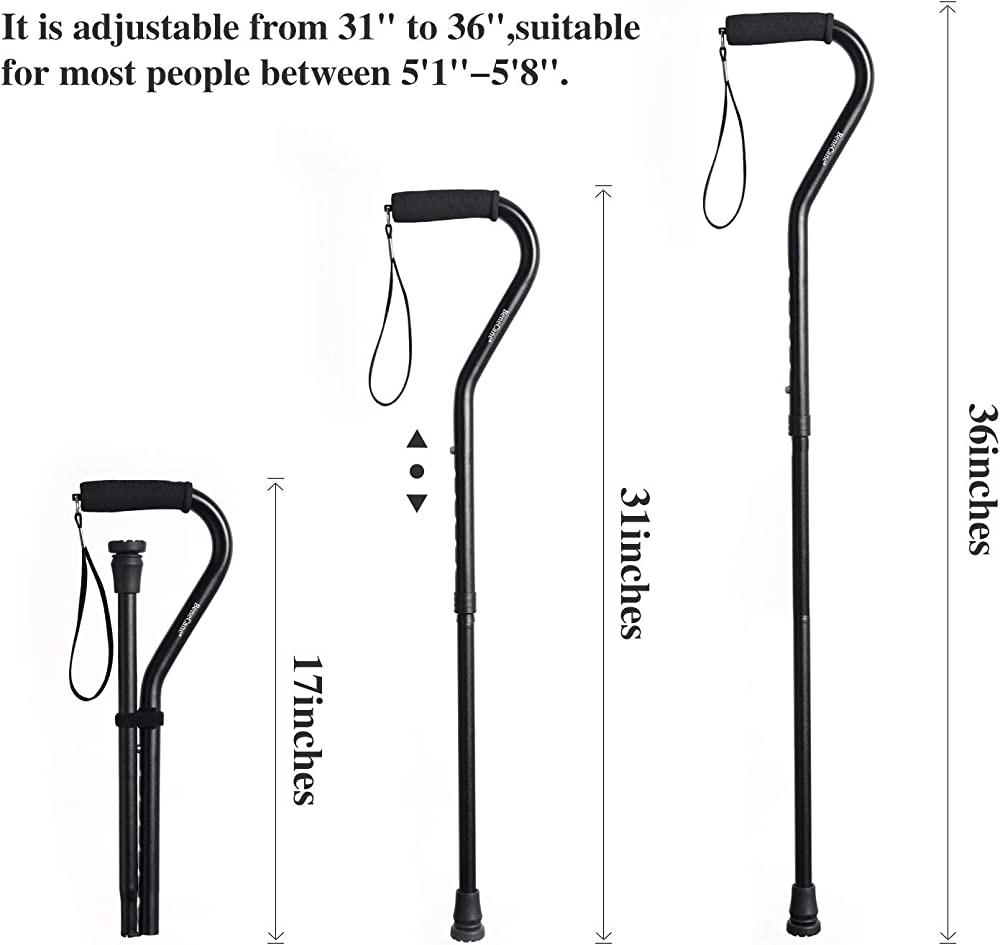What are the different types of tips for walking canes for hiking and their specific uses?
The tips of walking canes for hiking are an important factor in providing stability, traction, and durability on the trail. There are several different types of tips available, each with its own unique properties and benefits. Here are some of the most common types of tips for walking canes for hiking and their specific uses
Rubber tips
Rubber tips are the most common type of tip for walking canes for hiking. They provide good traction and stability on flat or relatively easy terrain and are suitable for use on paved roads, sidewalks, or the floor of indoor areas. Rubber tips are lightweight and inexpensive and can be easily replaced when they wear out.
Carbide tips
Carbide tips are made from a hard, durable material that is resistant to wear and tear. They provide excellent traction on rocky or uneven terrain, and are particularly useful for hikers who frequently encounter loose gravel or slippery surfaces. Carbide tips are also often used in snow and ice hiking conditions because they provide better traction. However, carbide tips are generally more expensive than rubber tips.
Spike tips
Spike tips are designed for use in snowy or icy conditions. They feature small spikes or studs that can provide excellent traction on slippery surfaces. Spike tips are generally removable, allowing hikers to switch between rubber or carbide tips depending on the terrain.

Wide base tips
Wide base tips provide a wider surface area than traditional tips, which can help prevent the hiking cane from sinking into soft or muddy terrain. They can also provide additional stability on uneven surfaces, making them a good choice for hikers with balance or stability issues.
Pivoting tips
Pivoting tips are designed to rotate or swivel as the hiker moves, which can help reduce strain on the wrist and forearm. They are particularly useful for hikers with arthritis or other conditions that affect wrist mobility.
Shock absorbing tips
Shock absorbing tips are designed to reduce the impact of hiking on joints and muscles. They can be particularly useful for hikers with joint pain or other physical issues. Shock absorbing tips are usually made from specialized materials such as gel or foam, which can help absorb and distribute shock.
When selecting the right tip for your hiking cane, it’s important to consider the terrain you’ll be hiking on, the level of stability and support you need, and your budget. Rubber tips are a good all-purpose choice for hiking on flat or relatively easy terrain, while carbide or spike tips are better suited for rough or slippery terrain. Wide base tips can provide additional stability, while pivoting or shock absorbing tips can reduce strain on the wrists and joints.
Ultimately, the right tip for your hiking cane will depend on your personal preferences and needs. By choosing the right tip and maintaining it properly, you can enjoy the great outdoors with greater comfort, confidence, and safety.
The benefits of walking cane for hiking
Walking canes for hiking can provide many benefits to hikers, including:
Increased endurance
By reducing the strain on the lower body, hiking canes can help hikers increase their endurance and hike for longer periods of time. This can be particularly beneficial for hikers who are new to hiking or who have physical limitations that would otherwise prevent them from hiking for extended periods.
Better weight distribution
Walking canes for hiking can help distribute the hiker’s weight more evenly between the upper and lower body, reducing the strain on any one area. This can be particularly important for hikers carrying heavy backpacks or other equipment, as it can help reduce the risk of injury or discomfort.
Walking canes for hiking can help hikers navigate difficult terrain, such as steep inclines or rough terrain. By providing additional support and stability, hiking canes can make it easier for hikers to climb or descend steep slopes, cross streams or rivers, and navigate other obstacles.
Increased confidence
By providing additional support and stability, walking canes for hiking can help hikers feel more confident and secure on the trail. This can be particularly important for hikers who are new to hiking or who have physical limitations that may make them feel uncertain or nervous on difficult terrain.